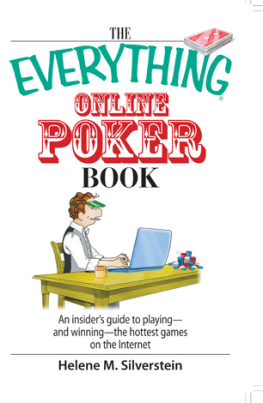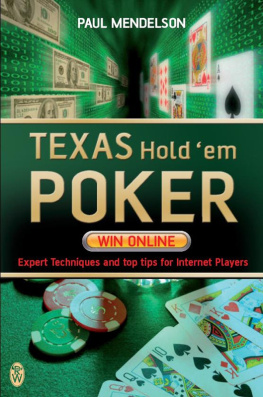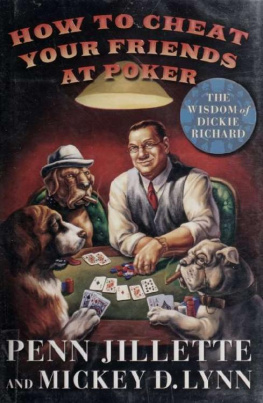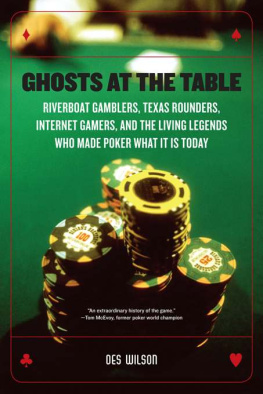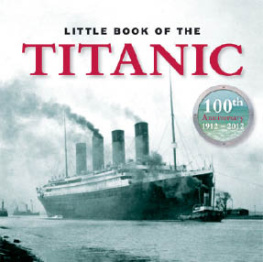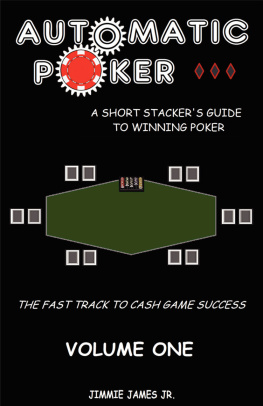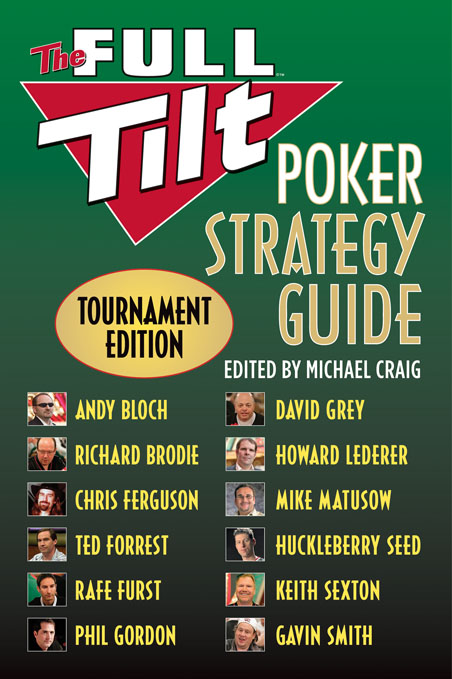Copyright 2007 by Michael Craig
All rights reserved. Except as permitted under the U.S. Copyright Act of 1976, no part of this publication may be reproduced, distributed, or transmitted in any form or by any means, or stored in a database or retrieval system, without the prior written permission of the publisher.
Warner Books
Hachette Book Group
237 Park Avenue
New York, NY 10017
Visit our website at www.HachetteBookGroupUSA.com.
The Warner Books name and logo are trademarks of Hachette Book Group, Inc.
First eBook Edition: June 2007
ISBN: 978-0-446-19691-8
ALSO BY MICHAEL CRAIG
The Professor, the Banker, and the Suicide King: Inside the Richest Poker Game of All Time
WELCOME TO THE TOURNAMENT EDITION
Player Introduction: The Passion to Be the Best
by Phil Gordon
What does it take to be a champion at poker? What are the players at the final table of the World Series of Poker doing that is so special? How can I take my game to the next level? What are the fundamentals of winning online and in live games, in tournaments and cash games? If youre like me, these are the questions you ask yourself over and over in an effort to improve and gain insight into the fascinating game of poker.
I am very fortunate. Ive been able to use my early success at the tables to infiltrate a unique fraternity of kindred soulsmy fellow professional poker players. Very often, when were standing around before a tournament (or, more commonly, drinking a beer or two after weve busted out), I get a chance to ask questions and learn from the best players in the game. Less desirably, I very often get firsthand lessons as pros like Chris Ferguson, Howard Lederer, and Ted Forrest stack my chips and count my cash.
I take every single opportunity to learn from these players. My combined experiences at and away from the table with the folks who wrote this book are my driving influence to improve, my guiding influences in my game, and my shaping influences for my ideas. In short, without their help, insight, and frequent theft of my blinds and bets, I wouldnt be the player I am today. In fact, I might not be a professional poker player at all.
See, if youre like me, you dont want to be good at pokeryou want to be truly great. I want my name uttered in the same sentence with Doyle Brunson, Johnny Chan, Howard Lederer, and Erik Seidel. I want to be the greatest player in the world. And, perhaps egotistically, I think with continued hard work, practice, and tests, I can get there. I know it wont happen overnight, and I know that it wont happen easily. But thats okay. Just the thought that it could happen is all I need to continue working hard at the game.
The players who wrote this book, me included, want to help you become a better poker player. We want you to experience the same joy that we do when we make a great play, take a great read, cash a million-dollar check, and slide that bracelet onto the wrist.
Some players complain about the introduction of books that help other players improve. Hey, why do you want to educate the fish? The games will be much tougher if you keep this up! To those critics, I say, Bring it on! I want tougher competition. I want my opponents to play better so that I have to play better. I want them to push me. I want them to force me to take my game to the next level. There is no Nicklaus without Palmer. There is no Jordan without Barkley. To be the best we can be, we need competitionfierce, tough, unwavering competition.
The strategies and plays youll find in this book will absolutely help your game. There is no doubt in my mind about that. But its up to you how aggressively you pursue improvement. Its up to you how patient youll be with your improvement. Its up to you how courageous youll be in trying out these techniques. Its up to you how resilient youll be when you face the inevitable setbacks.
Aggression. Patience. Courage. Resiliency. These are the qualities of a champion poker player. These qualities and an intense desire to improve are why you see the authors of this book winning on television and cashing the million-dollar checks. Will you join us at the final table, push us, and give us a battle for the bracelet? We sincerely hope so.
See you at the final table.
Editors Introduction: The Role of Books in Poker
by Michael Craig
A Book Made Me Want to Play Poker
I didnt start playing poker until I was thirty-two years old, and I started playing because of a book. My dad loaned me his copy of A. Alvarezs The Biggest Game in Town. I had never been interested in playing poker, but I became fascinated by the stories of the lives and games of the competitors at the 1981 World Series of Poker. (Im pretty sure I still have that copy; sorry, Dad.)
Not long after, almost by accident, I picked up and read Anthony Holdens Big Deal. Having read just one poker narrative, I approached this book warily and, like a gambler, asked myself, What are the odds this is going to be as good as Alvarez? After devouring thirty pages, I looked at the dedication and acknowledgments and found out Holden and Alvarez were good friends and had played in a weekly game together for decades. (I later learned that another poker writer, the late David Spanier, had gotten kicked out of the game for playing too tight, and WPT/WSOP winner Mel Judah, then a London hairdresser, had played in it.)
I could not have imagined that I would become close friends with Tony Holden, appear as a character in the sequel, Bigger Deal, and, through Tony, become pen pals with Al Alvarez. (I even wrote a column about one of my experiences with Tony for Card Player, titled Thank Mel Judah. When I used the upcoming issue to introduce myself to Mel and ask him about his experiences in the Tuesday Night Game, he said, Yeah, they kicked me out for winning too much. Terrible players.)
As I slowly overcame my fear of being the least experienced player in the crowded Mirage poker room, I started playing $3-$6 hold em whenever I was in Las Vegas. Soon I was finding excuses to stop by this poker room eighteen hundred miles from my home. I had moved up to $10-$20 and $20-$40 games and also played in some of the cardrooms outside Los Angeles and San Diego while on business in Southern California.
And I read.
It wouldnt be until the release of James McManuss Positively Fifth Street that I would find another poker narrative to fuel my imagination, but I found no shortage of challenging manuals on how to improve at the game. Like everyone else, I desperately wanted to get better.
Two Guns: David Sklansky and Mason Malmuth
I got lucky. The first book of poker strategy I ever owned was David Sklanskys Hold Em Poker. Originally published in 1976, this skinny book had a goofy cover, a typeface like a ransom noteand most of the concepts I have learned from the fifty to one hundred books I have read since (and the one you are reading now). With so many players learning poker and taking it seriously in the last few years, it may be difficult for a lot of people to understand how slow the learning curve was for a beginning player in the early nineties. With no poker rooms for almost two thousand miles, I probably played the same number of hands my first year as a new player today would in a week or two.
Semi-bluffing? Free cards? Pot odds? Imagine playing poker and being completely ignorant of those things. Just the idea that you played different cards based on your position at the table was a revelation.
Mike Matusow and Phil Ivey separately told me that that book was the only poker book they ever read. Howard Lederer told me, and he explains it in chapter 12, that Sklanskys book was responsible for his becoming a professional poker player. David and his collaborator/publisher Mason Malmuth deserve credit for permanently raising the quality of poker. I think I own a majority of the books they have written or published, have bought numerous copies for friends, and own multiple editions of a few.


